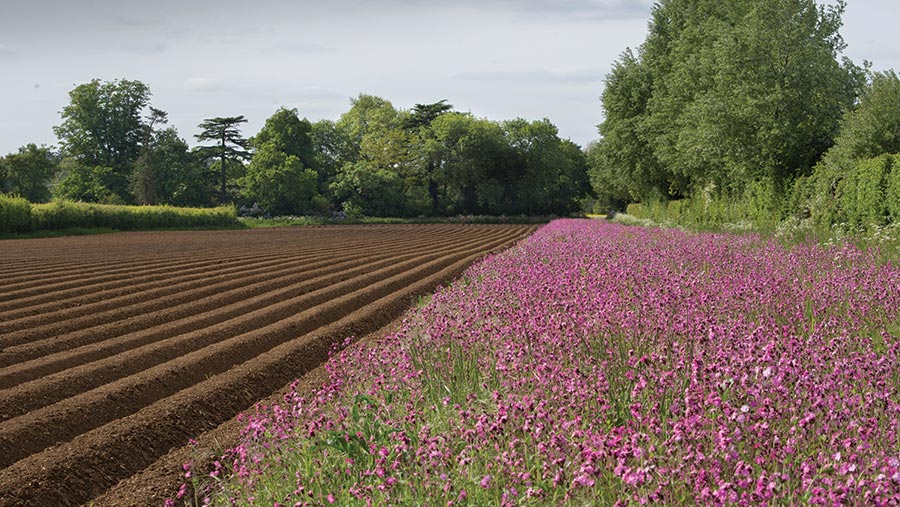Cereals 2021: E-tools to help plan environmental options
 © Tim Scrivener
© Tim Scrivener Three e-tools to help with the on-farm planning and delivery of environmental schemes were being demonstrated by the UK Centre for Ecology and Hydrology (UKCEH) at Cereals 2021.
Developed as part of the Assist sustainable farming project and available free of charge, the tools can be used separately or together to assess the quality of wildlife habits and identify the most suitable places for different environmental management options.
E-Surveyor identifies plant species from pictures taken with a smartphone. With this information, it can then inform users on the insects associated with the plants and identify any plant species that have not successfully grown from a seed mix.
“It helps to determine the function of any habitats. With payment by results being discussed, it could have a role in the benchmarking of habitats and show how to improve them,” says UKCEH computational ecologist Tom August.
See also: Free app to help growers with cropping for ELM scheme
Environmental outcomes
E-Planner is a web-based tool that indicates the suitability of different areas of the farm for various environmental outcomes, by using detailed spatial information on topography, soils, nearby habitats and other landscape features.
It scores each 5x5m area for its potential for creating habitat and displays them as “heat maps”, allowing users to match habitats to outcomes or investigate where the best location would be to achieve certain outcomes.
“If water protection is your aim, a wild bird food option – which allows fertiliser use – may not be the best choice. A flower-rich pollinator mix is usually more appropriate for buffering,” says the centre’s science area lead for biodiversity, Richard Pywell.
E-Viewer then takes these suitability maps and puts them into virtual reality. Used as a “What If?” tool, it is a powerful way of showing what a landscape would look like if changes were made to it and different habitats established.
“In a traditional, open landscape, for example, planting trees in the wrong place could have implications for views and negative effects on ecotourism,” says Prof Pywell.
